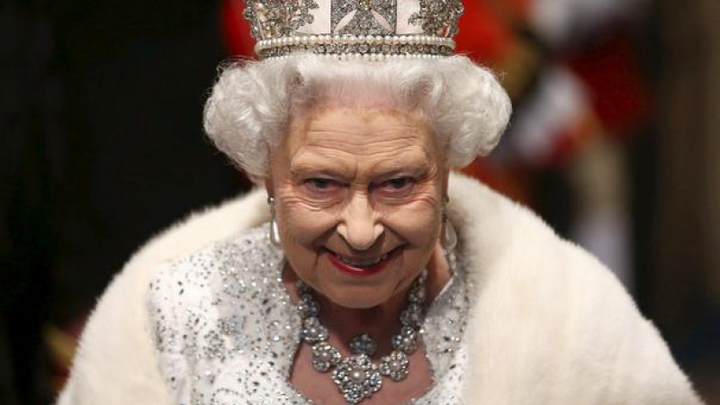
Accessible Education & Debt Relief
Donation protected
My name is Naty Tremblay and I am one of several thousands of "Canadian" post secondary graduates who took out government issued loans in order to access "higher education" and set a path towards sustainable employment. Most folks from low-income conditions know that a bank or governmental loan is the only way to pay your tuition and that this also means inheriting huge debt with interest.
Exceedingly high numbers of would-be students from low-income situations choose not to pursue higher education for "financial reasons". And yet, over 70% of new jobs require a degree, without guaranteeing a good wage. Those most harshly impacted by this poverty-education-wage gap are folks with disabilities, single parent families, as well as Indigenous, Black, Racialized and LGBT communities.
Like many, though I have been working hard since graduation, I have not been able to consistently manage the cost of living (In my case Toronto) and make monthly payments on my interest let alone my debt. In fact, I've been doing undervalued and underpaid organizing and service work with low income communities for a decade. I am currently being sued by the Government (and the Queen...) for my student debt. So are many many other loan defaulters.
The national rate of student debt is over 15 billion dollars, the highest ever. We have little to no social or governmental supports for debtors or defaulters of student loans. For people who continue to live on low-incomes post graduation, living paycheck to paycheck, bankruptcy or long term social welfare are your main options. If you are unable to work because of health, injury or disability your options are even more limited.
When polled a majority of Canadians would agree that education should be accessible for all. The Canadian Association of University Teachers state that "post secondary education is the quickest path out of poverty", however "substantial tuition fee hikes, declining after-tax income for those at the bottom of the Canadian economic ladder, a move away from non-repayable student financial assistance, and a fraying
of Canada's social safety net" are "burdens most felt by low-income Canadians".
Universally accessible education:
- Freezing or lowering tuition is one strategy to support all new and would be students.
However, this doesn't fully address the poverty gap.
- Providing government issued grants that don't need to be paid back is a critical strategy.
- So too is providing debt forgiveness for alumni students living in low-income situations.
So here's the ask:
- Will you endorse a public campaign that pushes for universally accessible education in Canada?
- Can you help spread the word to supportive organizations and institutions, to leaders, politicians, and media?
- Could you help with research and lobbying work?
- Would you like to join or help build a network of fellow alumni struggling with student debt?
- Are you able to contribute financially to a legal fund supporting this campaign? I am trying to raise $5,000 to cover legal fees for my own lawsuit (working with Gebresellasi Law). We also hope to raise funds for mounting a Class Action suite.
Please get in touch!!!
In solidarity & love,
Naty
Exceedingly high numbers of would-be students from low-income situations choose not to pursue higher education for "financial reasons". And yet, over 70% of new jobs require a degree, without guaranteeing a good wage. Those most harshly impacted by this poverty-education-wage gap are folks with disabilities, single parent families, as well as Indigenous, Black, Racialized and LGBT communities.
Like many, though I have been working hard since graduation, I have not been able to consistently manage the cost of living (In my case Toronto) and make monthly payments on my interest let alone my debt. In fact, I've been doing undervalued and underpaid organizing and service work with low income communities for a decade. I am currently being sued by the Government (and the Queen...) for my student debt. So are many many other loan defaulters.
The national rate of student debt is over 15 billion dollars, the highest ever. We have little to no social or governmental supports for debtors or defaulters of student loans. For people who continue to live on low-incomes post graduation, living paycheck to paycheck, bankruptcy or long term social welfare are your main options. If you are unable to work because of health, injury or disability your options are even more limited.
When polled a majority of Canadians would agree that education should be accessible for all. The Canadian Association of University Teachers state that "post secondary education is the quickest path out of poverty", however "substantial tuition fee hikes, declining after-tax income for those at the bottom of the Canadian economic ladder, a move away from non-repayable student financial assistance, and a fraying
of Canada's social safety net" are "burdens most felt by low-income Canadians".
Universally accessible education:
- Freezing or lowering tuition is one strategy to support all new and would be students.
However, this doesn't fully address the poverty gap.
- Providing government issued grants that don't need to be paid back is a critical strategy.
- So too is providing debt forgiveness for alumni students living in low-income situations.
So here's the ask:
- Will you endorse a public campaign that pushes for universally accessible education in Canada?
- Can you help spread the word to supportive organizations and institutions, to leaders, politicians, and media?
- Could you help with research and lobbying work?
- Would you like to join or help build a network of fellow alumni struggling with student debt?
- Are you able to contribute financially to a legal fund supporting this campaign? I am trying to raise $5,000 to cover legal fees for my own lawsuit (working with Gebresellasi Law). We also hope to raise funds for mounting a Class Action suite.
Please get in touch!!!
In solidarity & love,
Naty
Organizer
Naty Tremblay
Organizer
Toronto, ON


